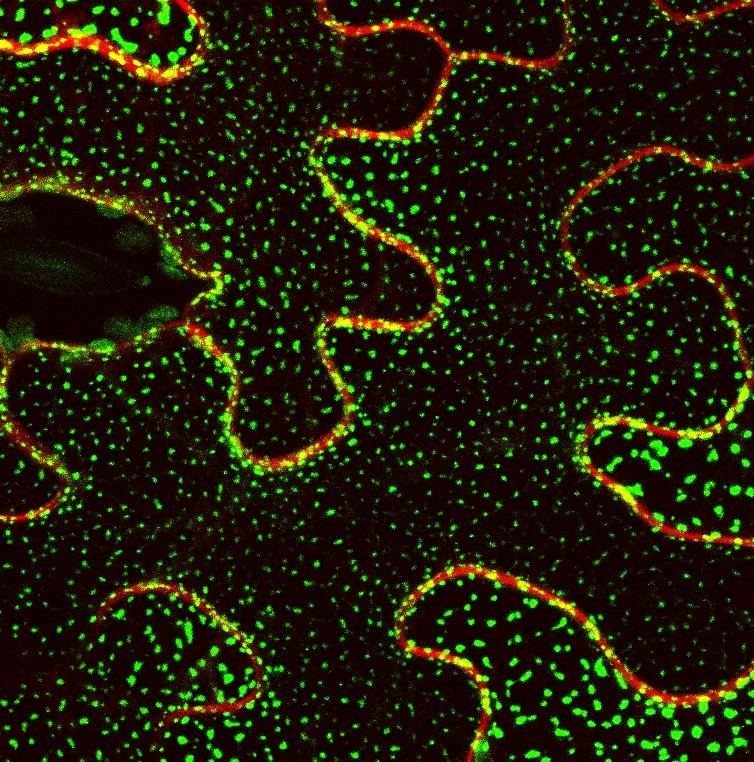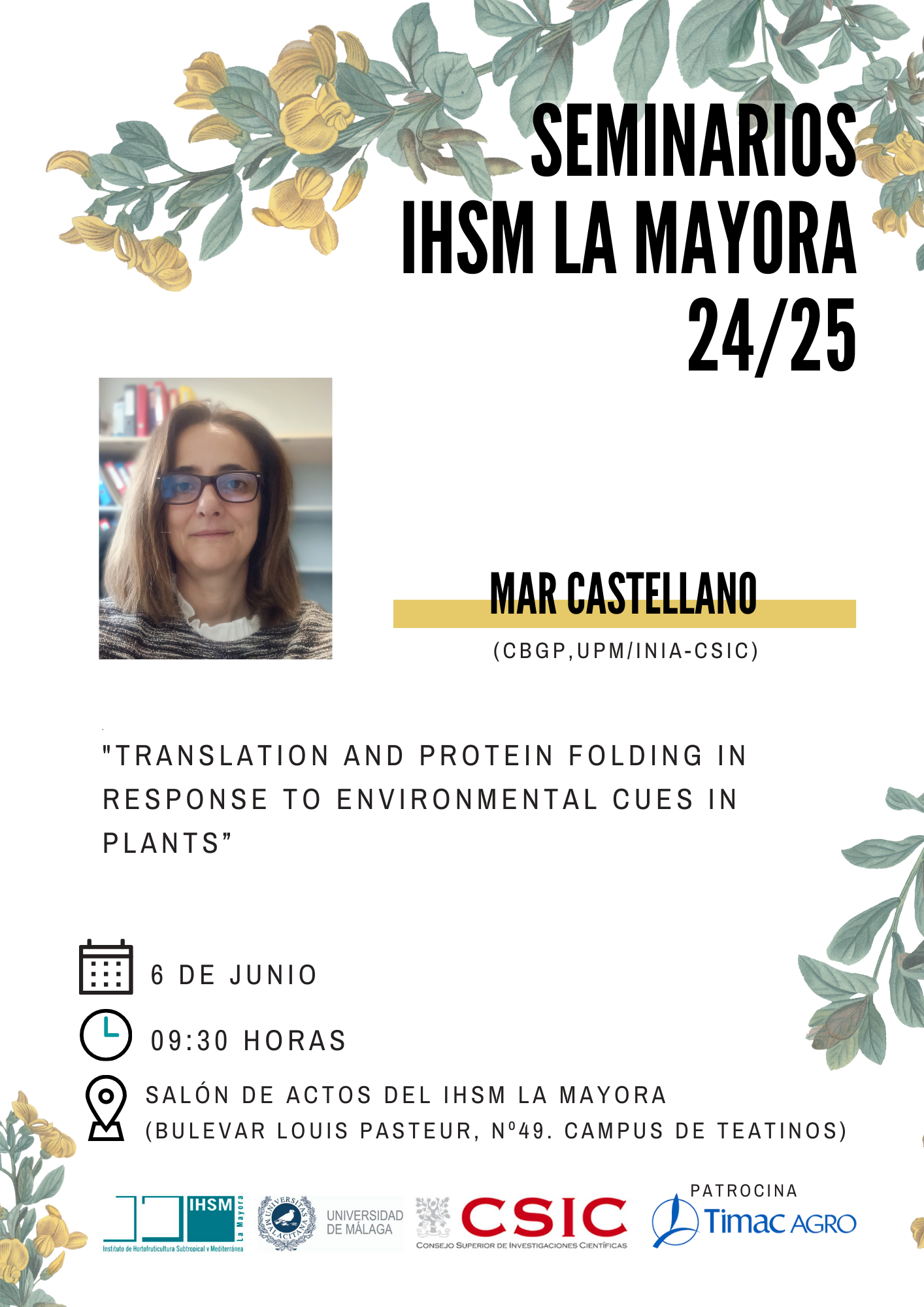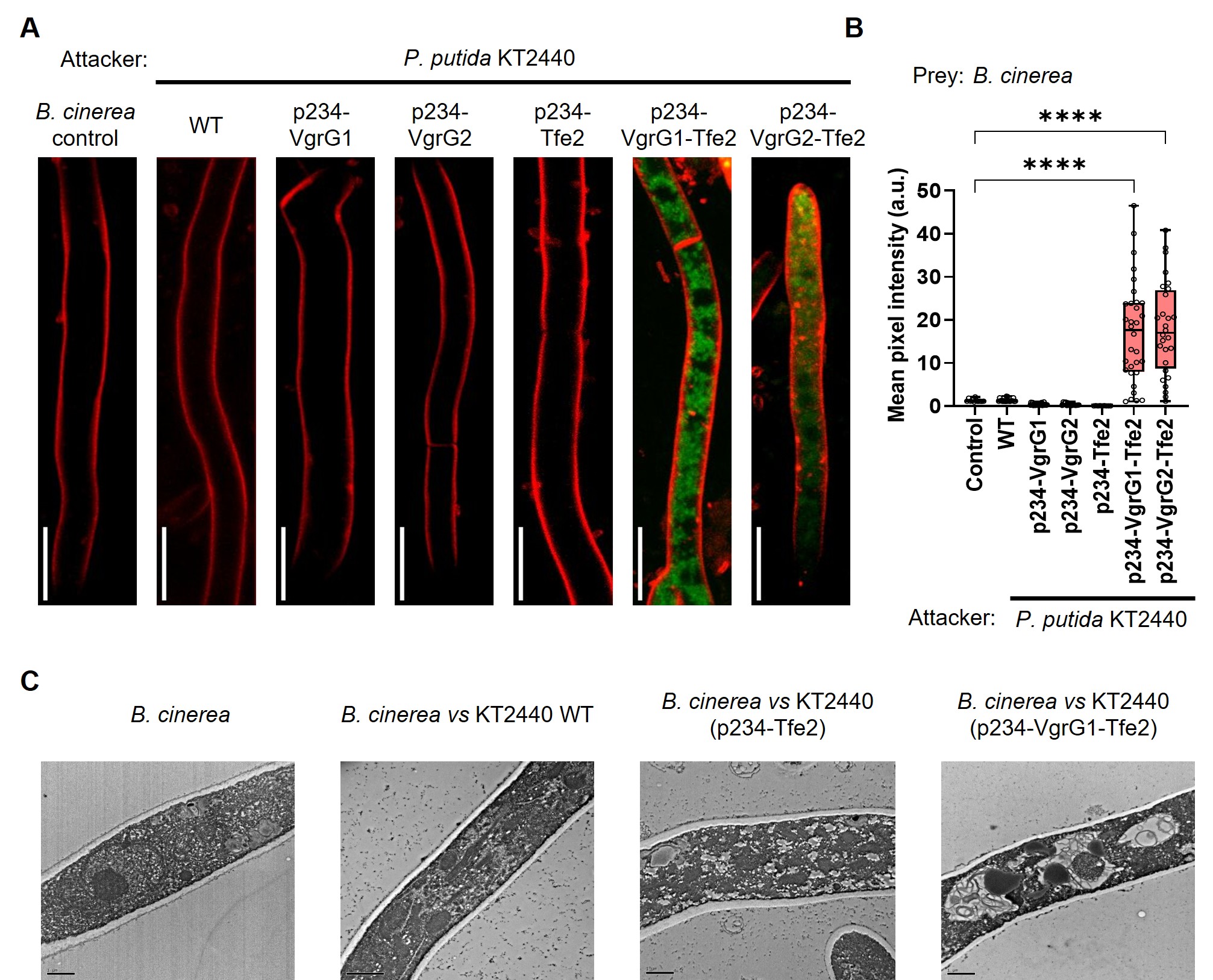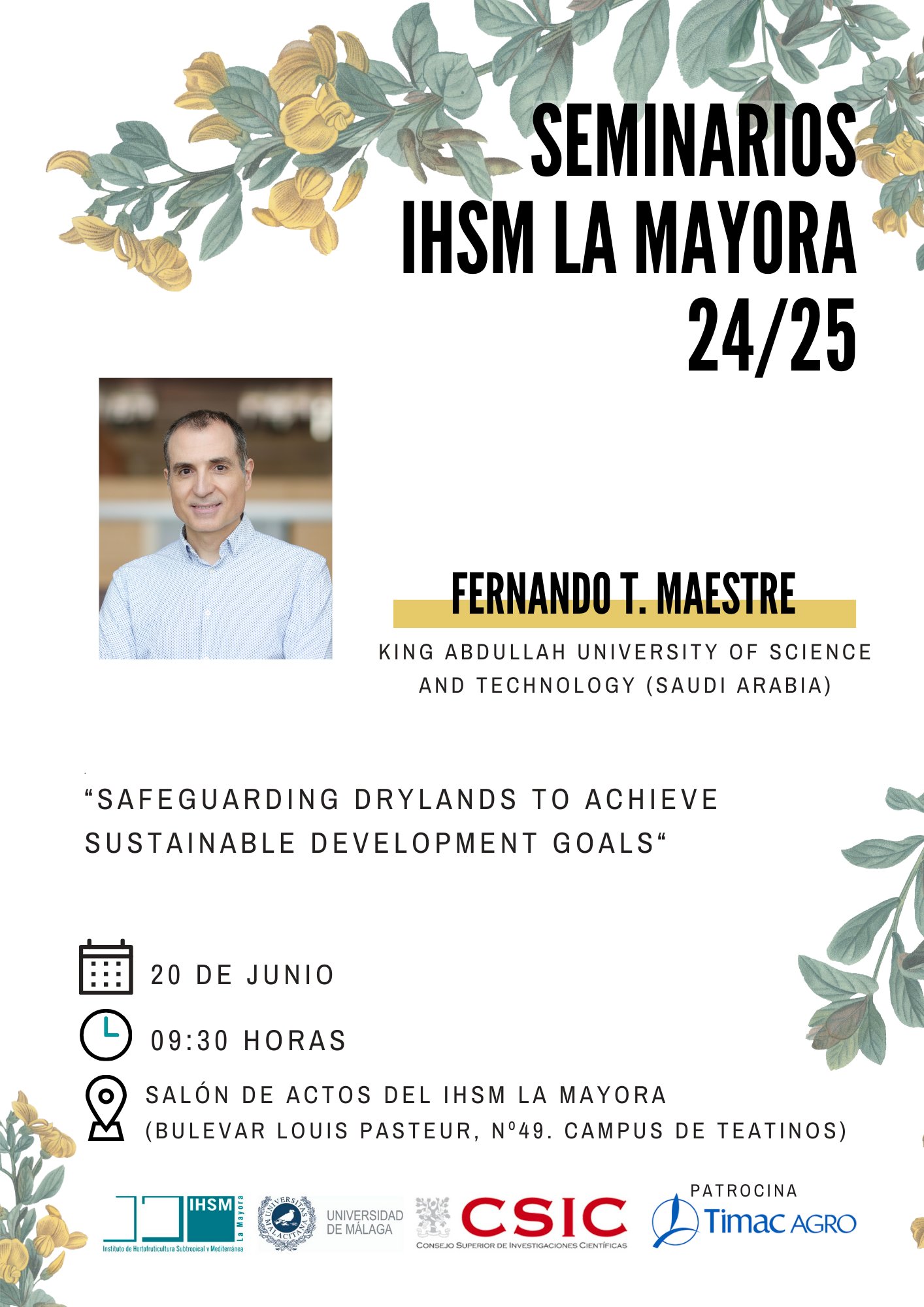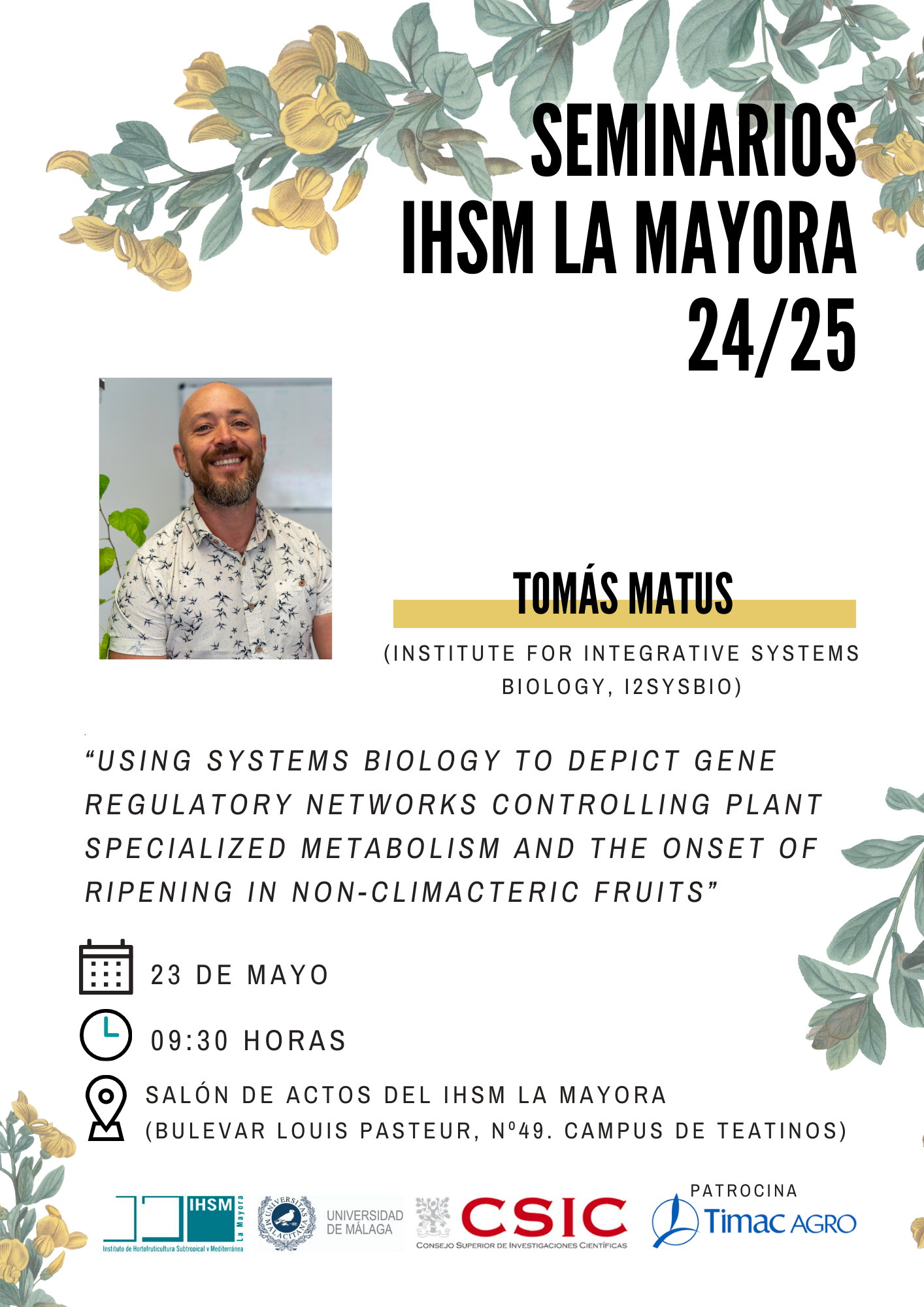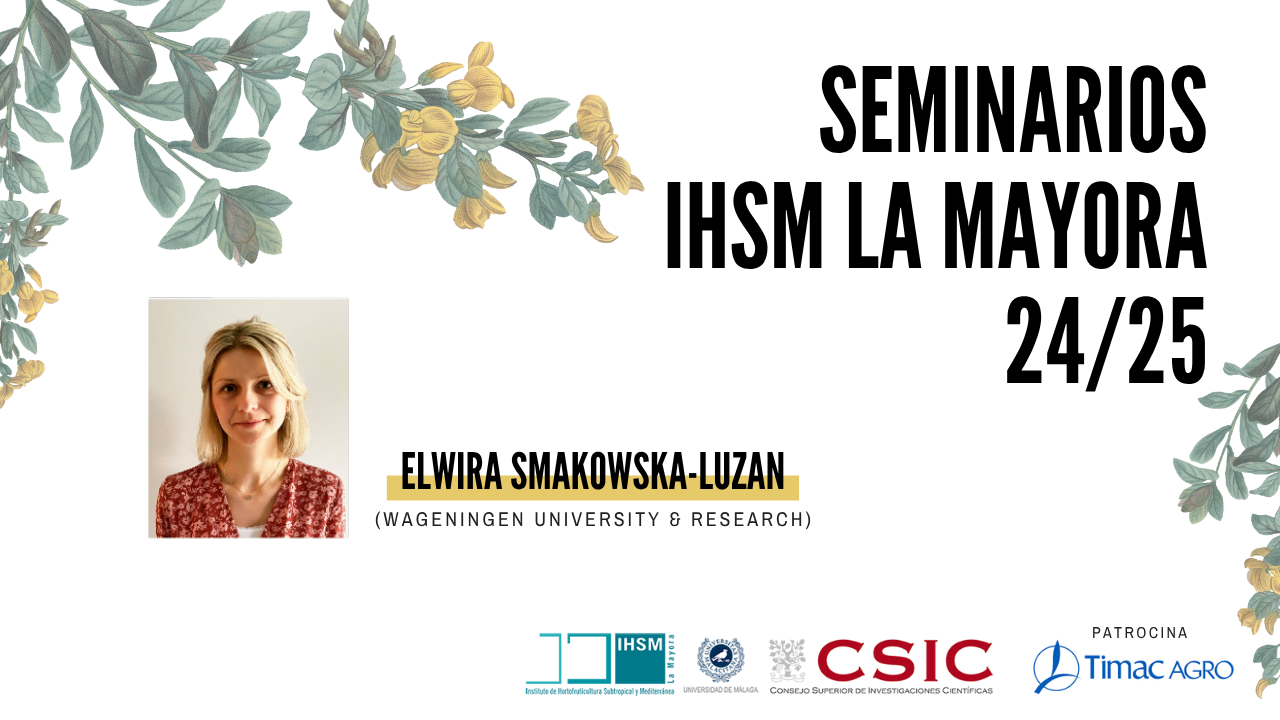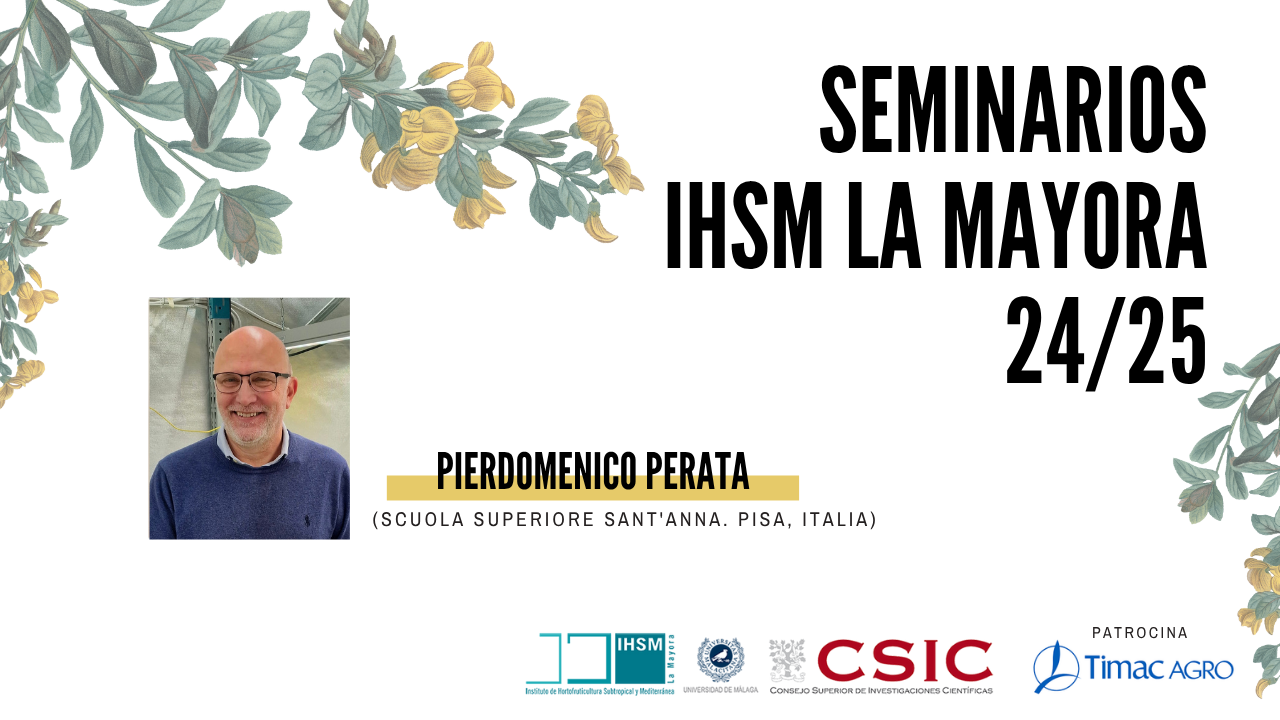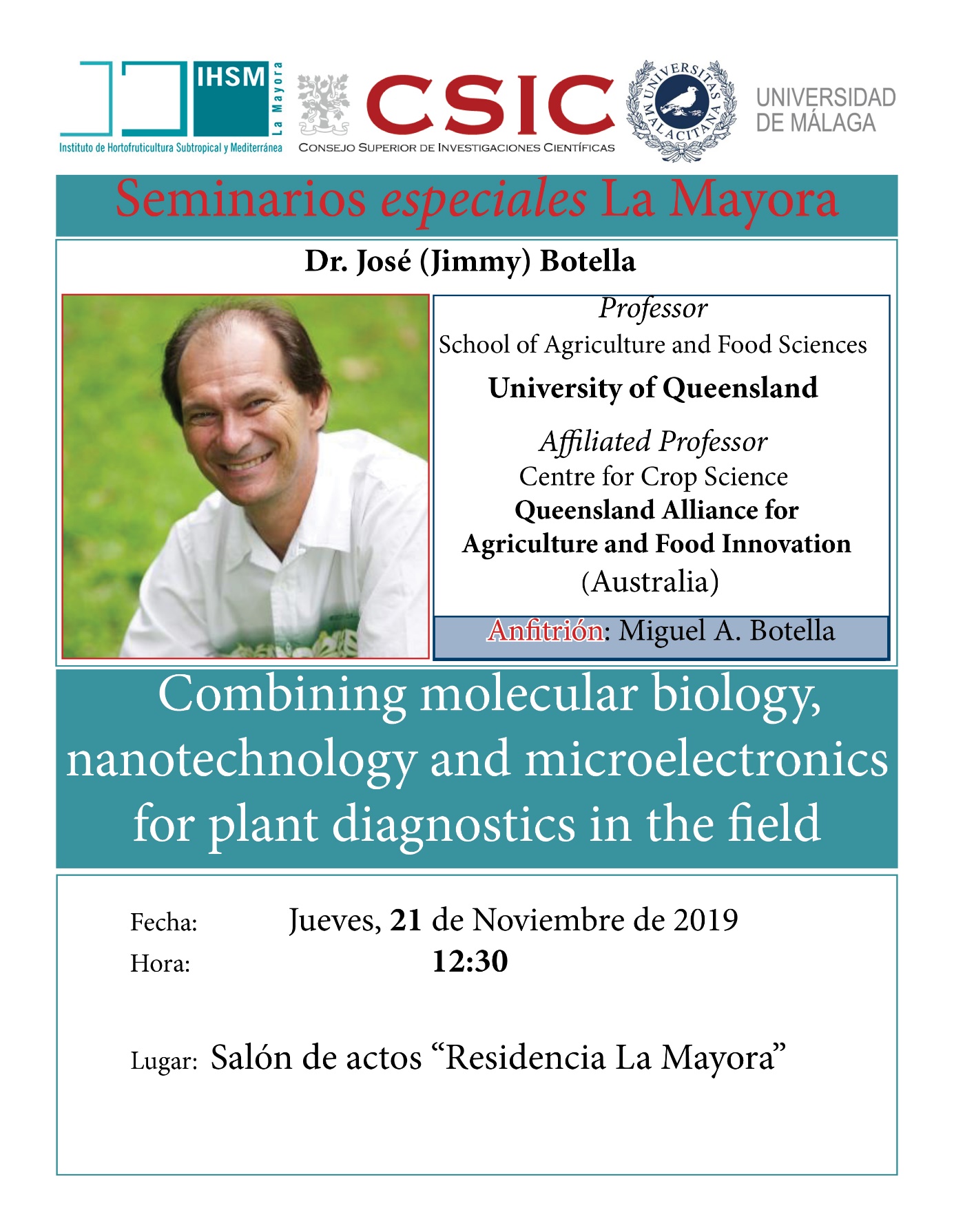
Seminarios internacionales en La Mayora. "Combining molecular biology, nanotechnology and microelectronics for plant diagnostics in the field". Dr. José Botella, University of Queensland (Australia)
Brief Biography: Dr. Jimmy Botella is a Professor of Plant Biotechnology at the University of Queensland, Australia. He started his studies at the University of Málaga and obtained a degree in Quantum Chemistry from the University of Madrid (Spain) and a PhD in Biochemistry from the University of Málaga (Spain). In 1995 he joined the University of Queensland where he established the Plant Genetic Engineering Laboratory (PGEL) specialising in the fields of tropical and subtropical agricultural biotechnology. Dr Botella has eleven international patents in the field of Plant Biotechnology, has founded two biotechnology companies and is a member of the Expert Scientific Panel for the Agricultural Biotechnology Council of Australia. He has been awarded the Chinese Academy of Sciences Visiting Professorship for Senior International Scientists and holds an adjunct position as Professor of Innovation at Henan University (PRC). His research interests include plant defense signaling, point-of-care diagnostics and biotechnological approaches for crop improvement. About this Seminar: Nucleic acid-based bioassays that can be performed on-site are in high demand, however a number of challenges need to be overcome before new technologies can be widely adopted. We need to create reliable, portable and simple methodologies that do not require a laboratory environment or sophisticated equipment. We have used a combination of nanotechnology and molecular biology to create a suite of rapid and easy-to-perform diagnostic tools suited to laboratory and point-of-need applications. Our platform technologies include: 1) nucleic acid purification dipsticks that allows extraction of DNA/RNA in less than 30 seconds without the use of specialized equipment, 2) an emulsion that enables visualization of amplification reactions in 10 seconds and 3) a low-cost, hand-held device that can perform ‘quantitative’ isothermal amplification, interpret results and report positive samples using mobile phone. The combination of these technologies allows us to reliably perform diagnostic assays in approximately 1 hour in rural and remote environments. These tools are suitable for a wide range of applications and can easily be adapted to identify biomarkers in plants, animals or humans.

